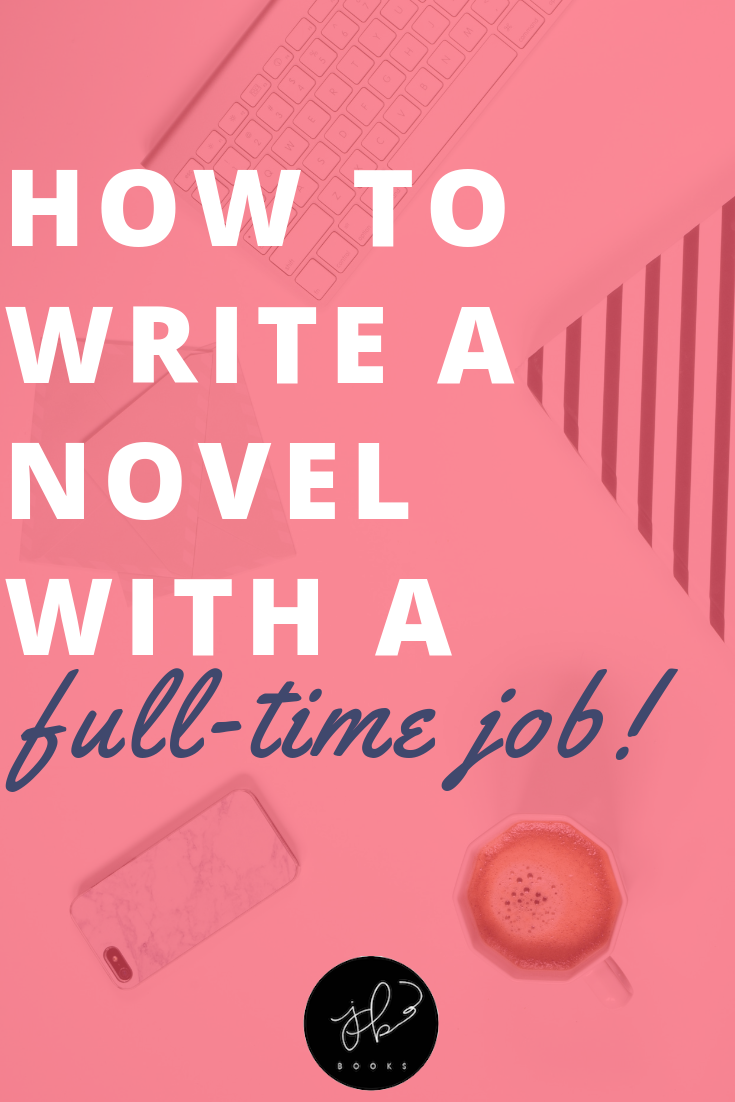Let's just get one thing straight: writing a novel is hard work. Phew. Glad I got that one off my chest. But you know what makes it just the teeniest bit easier? Time.
I could spend a whole blog post complaining about how there isn't enough time in the world, but no one wants to read that. Instead, working writer friend, I'm going to teach you a few key strategies that I used myself to finish my novel.
Ready? Here we go!
Do The Prep Work
There are thousands of people out there in the world with big novel-writing dreams. Only 3% of those people will actually see their manuscript as a completed novel. (Totally made up statistic.) (Sounds legit though, right?)
The point is that there are dreamers and there are doers. Don't stall in the dreamer phase of your life, friend. Here are a few tips to get serious about your writing:
Know what you want to write about
Have you ever felt trapped in idea limbo? You have tons of story ideas, but you can't pin one down. It's time for a bit of practice.
Start small. Write a short story from beginning to end. If you form the habit of starting and finishing a project, you'll work your way up to a full-fledged novel.
Have a back-log of scene ideas
I'll be honest. I'm not crazy about outlining. However, I do believe that you need to have a plan when you start your writing sessions.
Whether you're cool with outlines or not, you at least need to have a list of scene ideas as a reference. That way, when you sit down to write at your lunch break, you don't waste any time at all.
Set deadlines
Remember, we want to stay out of limbo as much as possible. When I got serious about writing my novel, I decided that I would have a finished manuscript within a year. I had one in eight months.
When it comes to your goals, you need to make them as concrete as possible. Take your novel out of the dream stage and into the reality stage. Here are a few timelines to set:
Date to finish your first draft. First drafts can be garbage. The faster you write them, the better. I'd aim for a 30 day first draft.
Date to finish your first round of edits. Editing = crunch time. It can be very daunting, but you can do it!
Date to send it off to an editor/out for query. Whichever publishing platform you choose, at some point, you'll need to send your book away. Have a goal date for this!
Do The Writing
One of the most difficult hurdles to writing a novel is the actual writing part. I'm just as guilty of this as the next writer, so I can totally understand that mental block of sitting down to write, only to have a completely blank page thirty minutes later.
Thankfully, there's good news. I've got a few common writing blocks to share with you and tricks you can do in order to overcome them.
You're easily distracted
Are there too many tabs open in your brain / on your computer? Do you find yourself jumping from idea to idea? Then you're probably just like the other 99% of the author community. (Again, made up statistic.)
This solution is fairly self-explanatory. If you're easily distracted, it's time to get focused. Here are a few ways to do that:
Write your novel on paper. Yep, you heard me correctly. You can read a whole post about it over here.
Word sprinting. Focused, concentrated writing time can get you where you need to go. Also, it saves time!
Turn the apps off on your phone / turn your WiFi off. Don't give yourself the option of surfing on the internet. Unplug, man!
Writing overwhelms you
This is a safe space. We can say that writing is really scary sometimes. The idea of writing a whole novel is overwhelming.
If you're trying to balance your characters, your scene work, your themes, you name it, then I've got a few pieces of advice for you.
Take a deep breath. No, a real one. Take a DEEP breath and calm your body and mind. (Too yoga-ish? Just trust me.)
Change your mindset. Take the pressure off! Don't sit down with the intention to write a book. Sit down with the intention to write a scene or a chapter. See? Already easier.
Talk with someone you trust. You may need an outside perspective. It's important to talk it out with someone you trust and love.
You don't have enough time
Without fail, this is what I hear the most from writers. "I don't have enough time." I know I've definitely said this many times through my writing journey, and I'm bound to say it again. When it comes to finding time to write, there are a myriad of factors.
After years of floundering, I finally found a formula that worked for me. If you find yourself trying to cram in writing sessions on your lunch breaks or staying up late at night to finish that last scene, I'm with you.
Discussion time: Are you a writer struggling to make it work with a full-time job? How do you find time to write?






